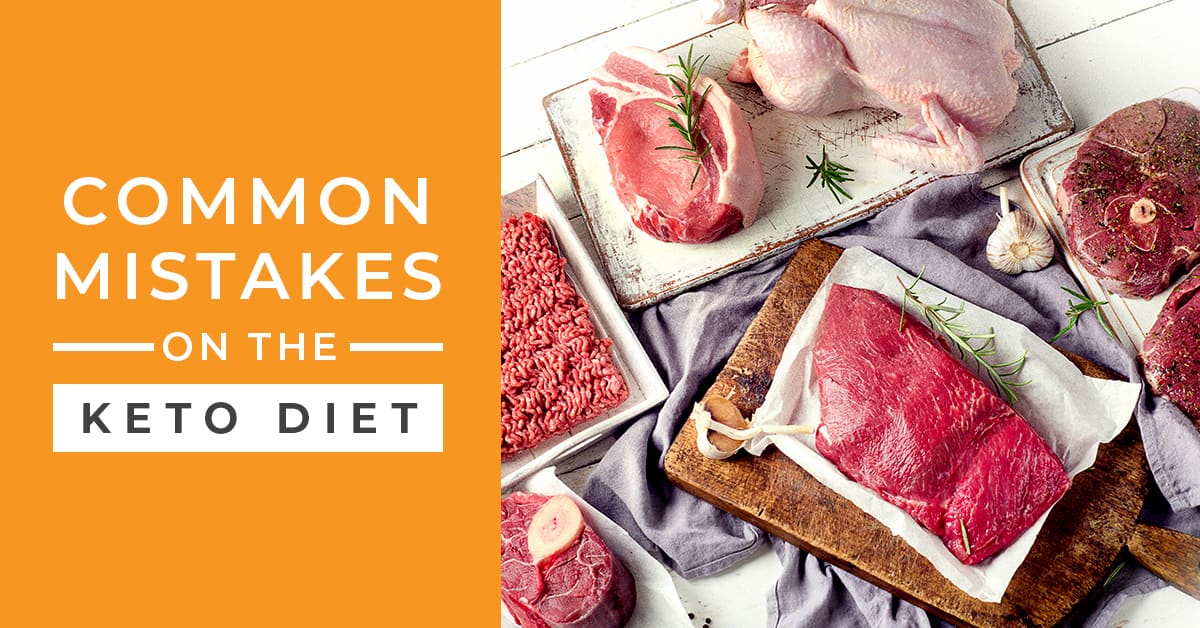How To Avoid Common Mistakes When Going Keto
As someone who has successfully transitioned to the ketogenic diet, I understand that beginning this type of diet can be a daunting experience. The keto diet, which is essentially a high-fat, moderate-protein, and low-carbohydrate diet, requires significant changes in eating habits.
However, there are common mistakes that people tend to make when trying to go keto, and it’s important to understand and avoid them to achieve optimal results and reap the benefits of the diet. Here’s a guide on the most common pitfalls to watch for, and how to avoid them.
Mistake 1: Overemphasizing Macronutrient Ratios Over Food Quality
One critical mistake people make is thinking that the ketogenic diet solely involves adjusting macronutrient ratios. Instead, it would help if you kept in mind that an optimal keto diet features nutrient-dense, whole foods.
The quality of the food you consume matters more than just tracking the amount of carbs, fats, and proteins you consume. Many people end up consuming highly-processed foods and neglect wholesome meals, which might aggravate inflammation and worsen health conditions.
The solution is simple. Always read the labels when buying products. Avoid foods that contain cheap industrial oils, artificial sweeteners, and trans fats. Instead, opt for whole foods like organic eggs, fresh vegetables, fruits, nuts, seeds, grass-fed meat, and wild-caught seafood.
Not only are whole foods more keto-friendly, but they also provide many essential nutrients that are necessary for optimal health.

Mistake 2: Overindulging in High-Fat Dairy Products
While it’s true that dairy is keto-friendly, some types of dairy can cause inflammation and trigger allergies, leading to digestive problems.
Conventional keto diets recommend high consumption of dairy products, but not everyone can tolerate them, especially the A1 beta-casein protein found in most cow’s milk.
To avoid this mistake, incorporate dairy-free alternatives like coconut milk, almond milk, and cheese made from nuts and seeds, amongst others, into your keto diet. You can also incorporate grass-fed ghee, which is butter-derived from grass-fed cows but has its casein protein removed.
Mistake 3: Not Including Vegetables in Your Diet
Many people shy away from vegetables because of their carb content, but they are a must-have component of the keto diet to enjoy optimal health.
Vegetables are a rich source of essential vitamins, minerals, fiber, and antioxidants, which are crucial in reducing the risk of chronic diseases such as cancer and heart disease.
To avoid this mistake, include non-starchy vegetables such as cauliflower, broccoli, spinach, and kale, as they pack valuable nutrients and are low in carbs. Moreover, cruciferous vegetables are fantastic in aiding detoxification, which is vital when transitioning to the ketogenic diet.
Mistake 4: Dehydration
One of the most overlooked keto mistakes is inadequate water intake. When transitioning to the keto diet, your body begins to excrete more water, which can lead to dehydration and, in some cases, dizziness or fatigue.
To avoid this mistake, ensure that you drink at least 2 liters of water a day. You can also incorporate low-carb electrolyte supplements to replenish lost minerals and improve your hydration levels.
Mistake 5: Obsessing Over Macros at the Expense of Calories
Many people tend to overconsume high-fat foods without considering their calorie content when trying keto. In contrast, the keto diet works optimally when it creates a calorie deficit in your body.
To avoid this mistake, track your calorie intake and balance it with the right amount of macronutrients. Additionally, practice portion control and avoid overeating.
Conclusion
Just like any other diet, the keto diet has its rules, and avoiding common mistakes during adherence to the diet is vital to enjoying optimal results.
By adopting a diet rich in high-quality whole foods, incorporating vegetables, and adequate hydration, you can make the much-needed adjustments required when going keto.
Additionally, seeking professional advice before embarking on any major lifestyle changes is advisable. Follow these tips, and you will be on your way to a successful ketogenic journey.
